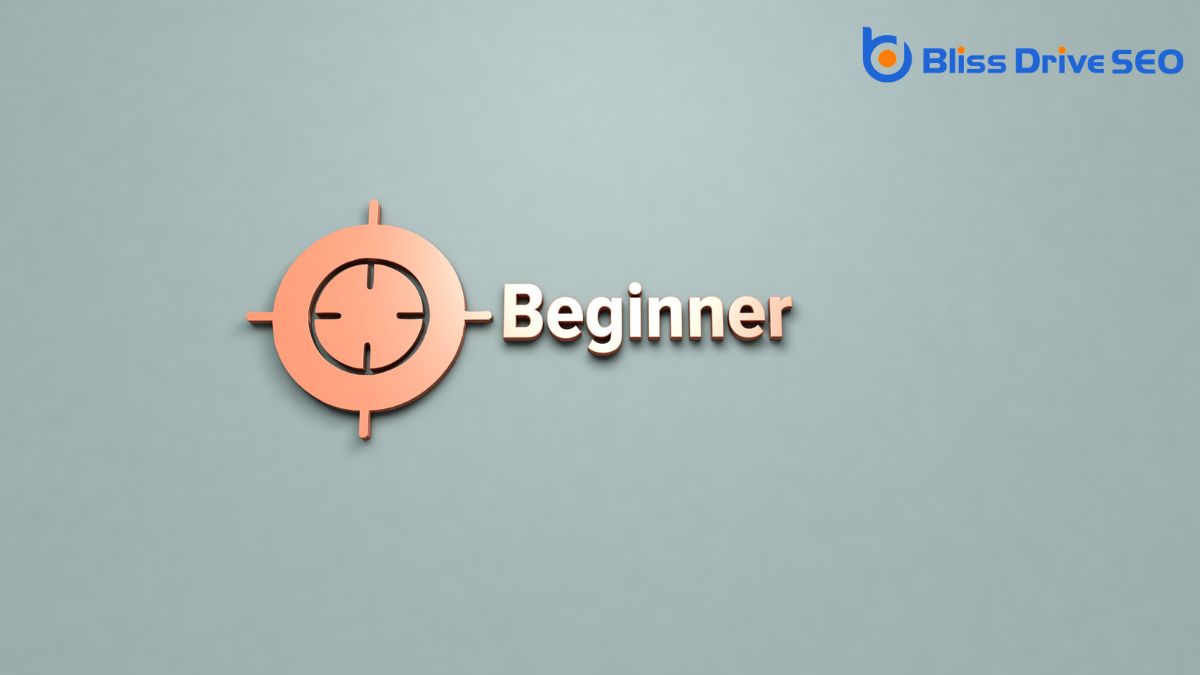Learn More About Us

You're probably wondering if SEO is tough to grasp when you're just starting out. At first glance, it might seem like a labyrinth of keywordsWords or phrases that users type into search engines to find information., algorithms, and ever-changing rules. You could find yourself overwhelmed by terms like on-page optimizationImproving individual webpages to rank higher and earn more relevant traffic in search engines., backlinking, and search intentThe purpose behind a user’s search query.. Yet, the real question isn't about the complexity itself but how you can navigate this digital maze effectively. So, how do you turn this challenge into an opportunity for growth and success? Let's explore some strategies that could make your SEO journey smoother and more rewarding.
Diving into the world of SEO starts with grasping its fundamentals. SEO, or Search Engine Optimization, is all about enhancing your website's visibility on search engines like Google. You'll want to understand that SEO isn't just a single technique but a series of strategies aimed at improving your site's presence online.
At its core, SEO involves three main components: on-page SEO, off-page SEO, and technical SEOOptimizing the server and website structure to improve search engine crawling and indexing..
On-page SEO is where you optimize the content and HTML source code of a page. It includes elements like title tags, meta descriptions, and headers. You'll make sure that your content is relevant and valuable to users, which helps search engines understand your site's purpose.
Off-page SEO involves actions taken outside of your website to impact its rankingsThe position at which a website appears in the SERP.. This includes backlinks from other reputable sites. The more quality links you have, the more authority your site gains.
Technical SEO focuses on the backend of your site. This includes improving site speed, making sure it's mobile-friendly, and verifying search engines can crawl it easily.

When learning keyword research, start by understanding search intent to align your content with what users are truly looking for.
Use keyword tools to discover popular terms and phrases that can boost your visibility.
With practice, you'll begin to see patterns and opportunities to enhance your SEO strategy.
Understanding the concept of search intent is essential for mastering keyword research in SEO. When you grasp what search intent means, you're better equipped to choose keywords that align with what users are genuinely looking for. Search intent refers to the reason behind a user's search query. Is it informational, navigational, transactional, or commercial? Recognizing this helps you tailor your content to meet these needs, increasing your chances of attracting and retaining visitors.
To identify search intent, start by examining the keywords you're considering. Ask yourself, "What's the main goal of someone using this keyword?" For instance, if someone searches for "how to bake a cake," they likely want detailed instructions (informational intent).
In contrast, a query like "buy chocolate cake near me" suggests they're ready to make a purchase (transactional intent).
When you understand search intent, you can create content that matches users' expectations. This boosts your site's relevance, improves user satisfaction, and enhances your chances of ranking higher in search results. By focusing on search intent, you're not just attracting visitors—you're drawing the right visitors who are more likely to engage with your content and take action.
Keyword tools are an invaluable resource for anyone learning keyword research in SEO. They provide insights into what your target audience is searching for, helping you identify the right keywords to focus on. When you use these tools, you gain a clearer picture of search volume, competition, and trends, which are all essential for crafting effective SEO strategies.
Start by exploring free tools like Google Keyword Planner or Ubersuggest. These platforms offerThe specific product or service being promoted by affiliates. a wealth of data without overwhelming you. You'll find the search volume for different keywords, which helps determine if a keyword is worth targeting. Look for keywords with a high search volume but low competition; these are often the sweet spot for beginners.
Don't overlook long-tail keywordsLonger, more specific keyword phrases that are less competitive and often more targeted.. They may have lower search volumes, but they're usually less competitive and can attract more targeted traffic. For example, instead of just "SEO tips," consider using "SEO tips for small businesses."
Additionally, keep an eye on the trends over time. Some keywords may be seasonal or lose popularity, so staying updated ensures your content remains relevant. Remember, mastering keyword tools is a step-by-step process. With practice, you'll become more skilled at identifying valuable keywords.
When mastering on-page SEO, you'll want to focus on optimizing meta tags effectively to guarantee search engines comprehend your content.
Structuring your content for clarity not only helps with SEO but also makes it easier for your audience to navigate and engage with your site.
Diving into the world of meta tags can feel overwhelming at first, but mastering them is essential for effective on-page SEO. Meta tags are snippets of text that describe a page's content and are important for search engines to understand what your page is about. By optimizing these, you improve your site's visibility and attract more visitors.
Here's how you can optimize meta tags effectively:
Creating a well-organized content layout is crucial for mastering on-page SEO, guaranteeing your readers comprehend and engage with your material. Begin by using clear headings and subheadings. They direct readers through your content and assist search engines in understanding your page's structure. Make certain your headings are relevant and contain keywords naturally, improving both readability and SEO.
Next, focus on short paragraphs and sentences. Lengthy blocks of text can overwhelm readers, so divide them into manageable chunks. Utilize bullet points or numbered lists to present information clearly and concisely. This not only enhances readability but also aids search engines in indexingThe process of adding web pages into a search engine's database. your content effectively.
Incorporate internal links to direct readers to related topics or previous posts, prolonging their time on your site. These links also assist search engines in comprehending your site's hierarchy and content relationships.
Lastly, utilize images, videos, and other media to enhance your content. Ensure they're optimized with relevant alt textDescriptions added to images to help search engines understand the content of images. and file names, improving your page's accessibility and SEO. By structuring your content thoughtfully, you make it simple for both readers and search engines to digest, enhancing your site's overall performance.
For many beginners, off-page SEO may initially seem like a complex puzzle, but breaking it down makes it manageable. It's all about building your website's credibility and authority through external means. While on-page SEO focuses on elements within your website, off-page SEO involves activities outside your site that impact its ranking.
Let's explore three essential strategies to get you started:
When it comes to mastering SEO, addressing technical aspects might feel overwhelming, but it's essential for guaranteeing your site runs smoothly and ranks well. Technical SEO involves optimizing the backend of your website so search engines can easily crawl and index your content. Start by focusing on a few key elements to demystify this area.
First, make certain your site is mobile-friendly. With more users accessing the web on their phones, search engines prioritize websites that are responsive and load quickly on mobile devices. Test your site's mobile compatibility and make necessary adjustments.
Next, consider your site's speed. A slow-loading website can frustrate visitors and harm your rankings. Compress images, leverage browser caching, and minimize code to improve speed.
Also, guarantee your site is secure by using HTTPS. An SSL certificate not only protects user data but also boosts your credibility with search engines.
After addressing the technical aspects of SEO, it's advantageous to explore the array of SEO tools available that can streamline your efforts and enhance your website's performance. These tools can help you analyze data, identify areas for improvement, and keep track of your progress. Let's delve into a few essential tools you should consider incorporating into your SEO strategy.
Utilizing these tools can notably reduce the complexity of SEO, giving you actionable insights to improve your site's performance and achieve your SEO goals.

Starting out with SEO can feel overwhelming, but with some foundational tips, you'll navigate the basics more easily.
First, focus on understanding your audience. Know what they're searching for and the questions they need answers to. This knowledge helps you create content that meets their needs and attracts organic trafficVisitors who come to a website through unpaid search engine results..
Next, master keyword research. Use tools to find relevant keywords with a good balance of search volume and competition. These keywords should appear naturally in your content, including titles, headers, and meta descriptions, to improve visibility.
Don't underestimate the power of quality content. Search engines value informative, engaging, and original content. Aim to solve problems or provide insights that are valuable to your readers. Consistent posting is key, so develop a content calendarA schedule for planning, creating, and publishing content. to stay organized.
Additionally, pay attention to on-page SEO. Optimize images by using alt text and affirm your site is mobile-friendly. Fast loading times and an easy-to-navigate structure can enhance user experience and boost rankings.
As a beginner, you might find SEO challenging at first but don't get discouraged. With dedication and a willingness to learn, you'll soon grasp the basics. Focus on understanding keyword research and mastering on-page techniques. Explore off-page strategies and delve into technical aspects. Use SEO tools to guide your efforts and stay updated with industry trends. Remember, patience is key, and seeking advice from experts will help you improve your site's visibility over time.
